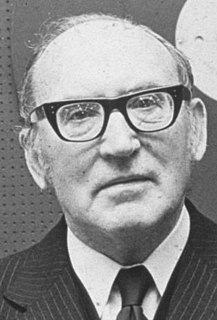A Quote by Seymour Papert
What the gears cannot do the computer might. The computer is the Proteus of machines. Its essence is its universality, its power to simulate
Related Quotes
Today, your cell phone has more computer power than all of NASA back in 1969, when it placed two astronauts on the moon. Video games, which consume enormous amounts of computer power to simulate 3-D situations, use more computer power than mainframe computers of the previous decade. The Sony PlayStation of today, which costs $300, has the power of a military supercomputer of 1997, which cost millions of dollars.
The attribution of intelligence to machines, crowds of fragments, or other nerd deities obscures more than it illuminates. When people are told that a computer is intelligent, they become prone to changing themselves in order to make the computer appear to work better, instead of demanding that the computer be changed to become more useful.
Post-human intelligence will develop hypercomputers with the processing power to simulate living things - even entire worlds. Perhaps advanced beings could use hypercomputers to surpass the best 'special effects' in movies or computer games so vastly that they could simulate a world, fully, as complex as the one we perceive ourselves to be in.
When I use a direct manipulation system whether for text editing, drawing pictures, or creating and playing games I do think of myself not as using a computer but as doing the particular task. The computer is, in effect, invisible. The point cannot be overstressed: make the computer system invisible.
One can think of any given axiom system as being like a computer with a certain limited amount of memory or processing power. One could switch to a computer with even more storage, but no matter how large an amount of storage space the computer has, there will still exist some tasks that are beyond its ability.
First, we want to establish the idea that a computer language is not just a way of getting a computer to perform operations but rather that it is a novel formal medium for expressing ideas about methodology. Thus, programs must be written for people to read, and only incidentally for machines to execute.







































